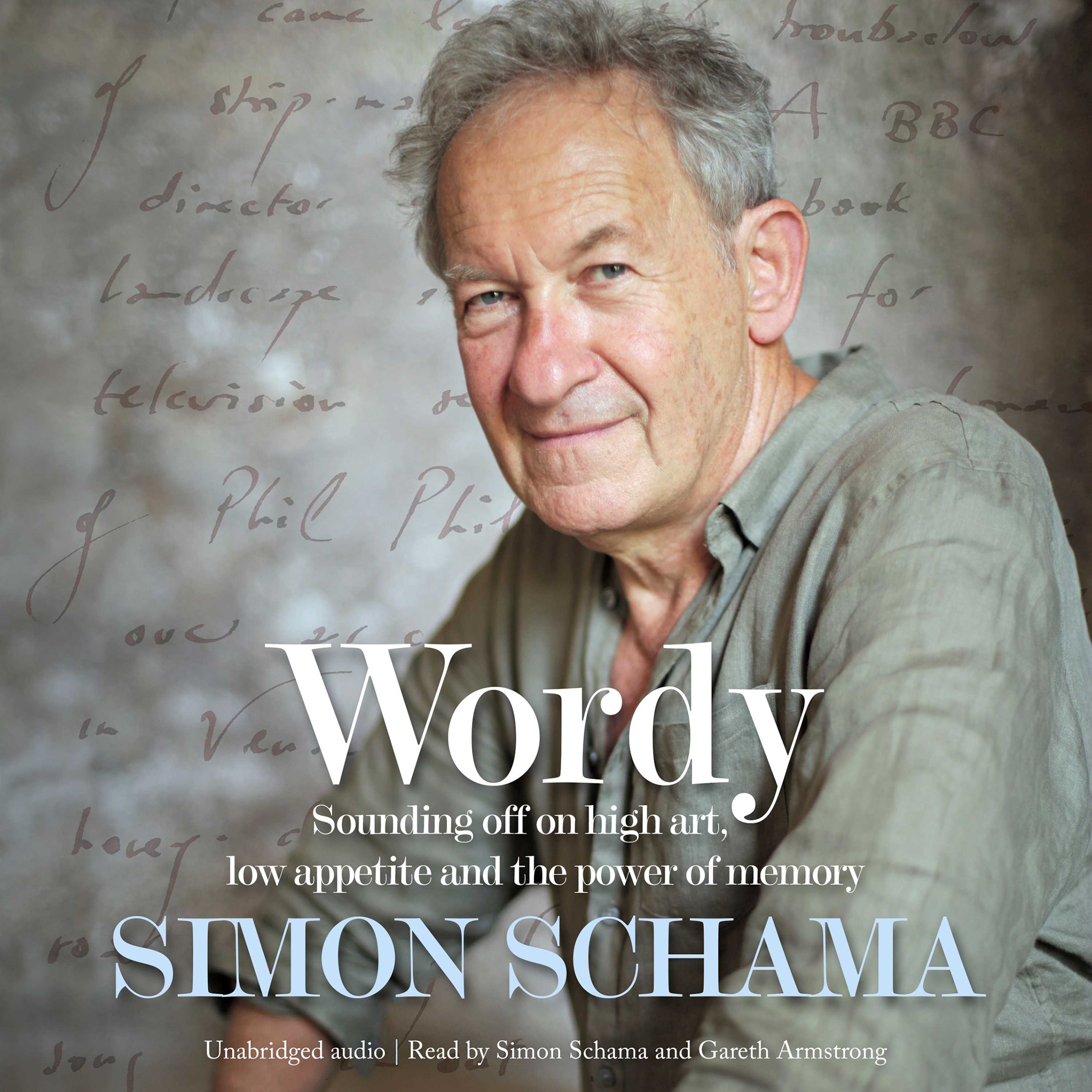
‘ Wordy is about the intoxication of writing; my sense of playful versatility; different voices for different the polemical voice for political columns; the sharp-eyed descriptive take for profiles; poetic precision in grappling with the hard task of translating art into words; lyrical recall for memory pieces. And informing everything a rich sense of the human comedy and the ways it plays through historical time. It's also a reflection on writers who have been shamelessly gloried in verbal abundance; the performing tumble of language - those who have especially inspired me - Dickens and Melville; Joyce and Marquez.’ Simon Schama Sir Simon Schama has been at the forefront of the arts, political commentary, social analysis and historical study for over forty years. As a teacher of Art History and an award-winning television presenter of iconic history-based programming, Simon is equally a prolific bestselling writer and award-winning columnist for many of the world’s foremost publishers, broadsheet newspapers, periodicals and magazines. His commissioned subjects over the years have been numerous and wide ranging – from the music of Tom Waits, to the works of Sir Quentin Blake ; the history of the colour blue, to discussing what skills an actor needs to create a unique performance of Falstaff . Schama’s tastes are wide-ranging as they are eloquent, incisive, witty and thought provoking and have entertained and educated the readers of some of the world’s most respected publications - the Times, the Guardian, the New Yorker, Harper’s Bazaar and Rolling Stone magazine. Wordy is a celebration of one of the world’s foremost writers . This collection of fifty essays chosen by the man himself stretches across four decades and is a treasure trove for all those who have a passion for the arts, politics, food and life.
Author

Simon Schama was born in 1945. The son of a textile merchant with Lithuanian and Turkish grandparents, he spent his early years in Leigh-on-Sea in Essex. When his parents moved to London he won a scholarship to Haberdashers’ Aske’s School where his two great loves were English and History. Forced to choose between the two he opted to read history at Christ’s College, Cambridge. Here he was taught by Sir John Plumb whose other students: Linda Colley, Roy Porter and John Brewer are now central to British historical thought. It was Plumb’s influence which instilled in him the importance of narrative and written style in order to gain an audience for history outside academia. One of the hallmarks of Schama’s work is his flair for description: ‘he gets arcane matters to walk, in fact dance, off the page’ according to fellow historian Peter Hennessy. However, his approach is contentious and invites criticism of subjectivity and populism from academic circles. Schama remained at Christ’s for 10 years after his degree, becoming a fellow and then director of Studies, before moving to Brasenose College Oxford. While at Oxford he wrote Patriots and Liberators: Revolution in the Netherlands 1780-1813 (1977), which won the Wolfson Literary Award, and Two Rothschilds and the Land of Israel (1979). At Oxford he met his wife, Ginny Papaioannou a geneticist from California. Tired of the Oxford system (he once described his experience as being ‘like a gerbil on a treadmill’) and enticed by the freedom of US Academic life, he moved to America in 1980, becoming Professor of History at Harvard. Here he wrote The Embarrassment of Riches: An Interpretation of Dutch Culture in the Golden Age (1987), Citizens: A Chronicle of the French Revolution (1989) and Dead Certainties (Unwarranted Speculations) (1991): an a unusual linking of the death of General Wolfe at Quebec in 1759 and the murder of a doctor, George Parkman, by a Harvard Professor in 1849. Citizens, which was written at lightening speed: 900 pages in only 18 months, won the 1990 NCR Book Award. However, Schama’s emphasis on the terror and violence of the revolution and his argument, that from its beginning it was a ‘sacrament of blood’, ensured it has never found a publisher in France. He is now professor in history and art history at Columbia where he has written Landscape and Memory (1996) which received the W H Smith Literary Award and Rembrandt’s Eyes (1999). The latter is a controversial reassessment of the artist which attempts to reinstate the notion of Rembrandt the genius, aiming to invoke the atmosphere as well as the historical context. In Schama’s view, as he tells David D’Arcy in Art Newspaper ‘There are some passages of sublime reinvention for which history has absolutely no answers…it seems to me pointless and trivial to pretend that it does.’ Simon Schama has also worked for the BBC on a 16 part series: ‘A History of Britain’ and has been an art critic and cultural essayist for The New Yorker and Talk magazine. He lives in New York with his wife and their two children Chloe and Gabriel.